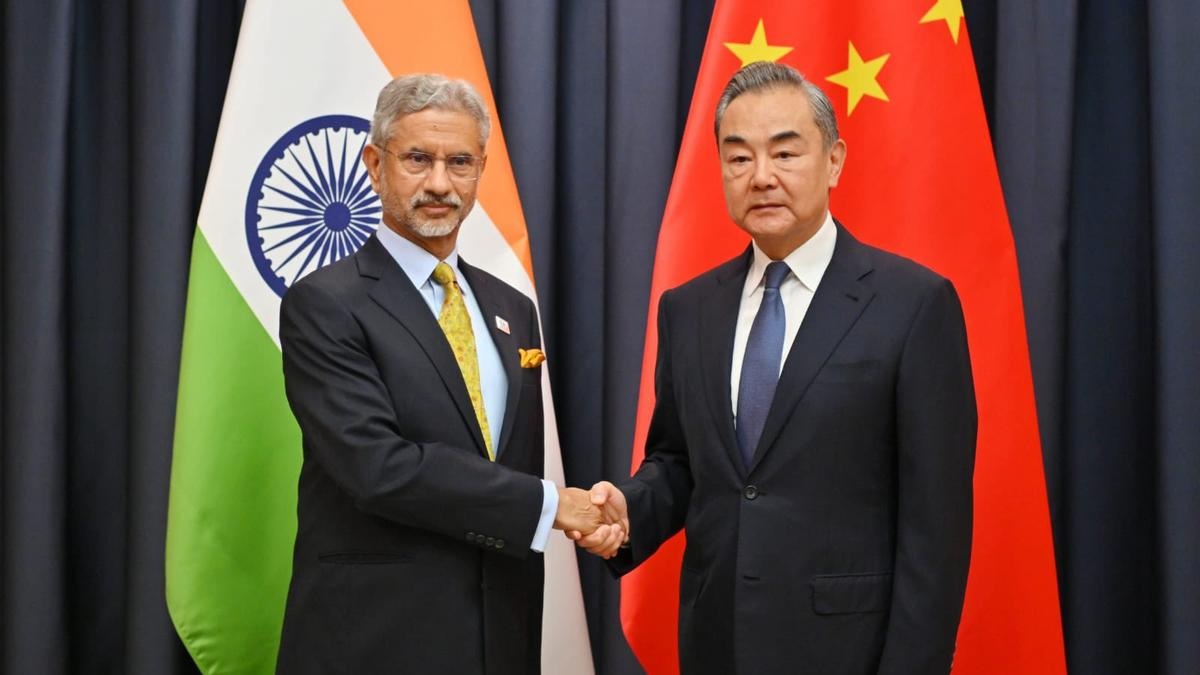EAM Jaishankar Stresses Respect for LAC in Key Meeting with Chinese Foreign Minister

In a significant diplomatic engagement, India's External Affairs Minister S. Jaishankar met with Chinese Foreign Minister Wang Yi on the sidelines of the ASEAN meetings in Vientiane. This meeting comes at a crucial time as tensions along the Line of Actual Control (LAC) between India and China have remained a major concern since the 2020 Galwan Valley clash.
During the discussion, Jaishankar emphasized the critical need to respect the LAC and adhere to past agreements to stabilize bilateral relations. He highlighted that peace and tranquility at the border are essential for the normalization of ties between the two neighboring giants. This sentiment was echoed on his social media platform X, where he reiterated the importance of mutual respect, mutual interest, and mutual sensitivity in guiding the India-China relationship.
The backdrop to this meeting includes the aggressive posturing by Chinese troops in eastern Ladakh in May 2020, which disrupted the status quo and led to the Galwan Valley clash. Since then, both countries have maintained significant troop deployments near the LAC, with India stationing over 50,000 soldiers equipped with advanced weapons to prevent any further unilateral changes by China.
The ASEAN meeting provided an opportune platform for Jaishankar and Wang to review the progress made since their last encounter in Astana earlier this month. The primary focus was on expediting the disengagement process at friction points along the LAC. The ministers agreed that achieving complete disengagement and ensuring respect for the LAC are pivotal steps towards rebuilding and stabilizing bilateral relations.
Jaishankar also underscored the importance of the "three mutuals" — mutual respect, mutual interest, and mutual sensitivity — as fundamental principles for the relationship between India and China. The Ministry of External Affairs' press release highlighted that both sides must fully abide by existing bilateral agreements and protocols to maintain peace at the borders.
In addition to border issues, the two leaders exchanged views on regional and global matters. Jaishankar noted the broader implications of stable India-China relations for Asia and the multipolar world. He expressed optimism about resolving the border dispute and reaffirmed India's commitment to completing the disengagement process.
The meeting also set the stage for an upcoming session of the Working Mechanism on Consultation and Coordination on India-China Border Affairs (WMCC), aimed at advancing discussions and addressing remaining issues.
Jaishankar's visit to Vientiane from July 25 to 27 underscores India's active participation in the ASEAN framework and its commitment to ASEAN centrality and the ASEAN-India Comprehensive Strategic Partnership. This year marks the tenth anniversary of India's Act East Policy, highlighting the country's deep engagement with Southeast Asia.
As the ASEAN region continues to play a vital role in global geopolitics, India's consistent efforts to foster strong ties with ASEAN nations, alongside managing complex bilateral relationships like that with China, reflect its strategic vision and commitment to regional stability.


